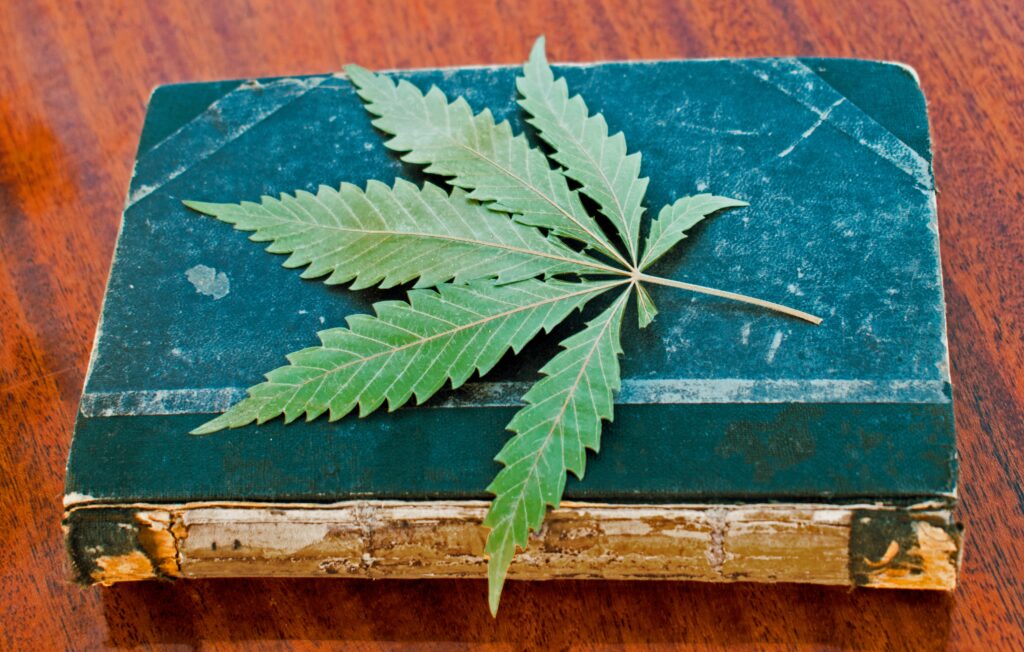Earlier this month, my brother and I got tickets to see Argentina play against Canada in the Conmebol Copa America at Mercedes-Benz Stadium, and naturally we smoked a bit before heading over. Gorging on pulled pork and sipping cold cans of Stella Artois till our stomachs hurt, it didn’t take long for my mind to stop focusing on the game itself and start philosophizing about what sports events like this represented on an abstract level.
The sweaty players, tiny as ants from my viewpoint, struck me not as professional athletes but pretend hunter-gatherers pitted against each other in a fight for survival and victory that pushed their bodies to the limit. Conversely, the 70,000 or so people in the stands struck me not as spectators but alien overlords, watching the bloodbath in the way the ancient Romans would have watched gladiators battle in the Colosseum.
These overlords, I mused, were rather content with their having risen above the unforgiving state of nature, drowning themselves in food and drink while others fought for their lives for their amusement. But, so I imagined, they also felt ashamed, perhaps because they knew that – deep down – they were not living life the way human beings were supposed to, unlike those on the field.
I cringe a little when I look back at the misspelled notes I jotted down on my phone during halftime – but only a little. By and large, I tend to be quite happy with the stuff I write when I’m high. And I write high quite a lot. For years now, I’ve indulged in small amounts of weed whenever I’m working on challenging journalistic projects. Not only because it takes away some of the pressure I put on myself, helping me jump over sporadic bouts of writer’s block, but also because – and this is what I’ll try to argue in the following article – because there’s something about cannabis that, at least for me, really gets the writing juices flowing, allowing me to see the world in a new light, make astute observations, and put thoughts that would otherwise evade articulation into words.
I am, of course, far from the first writer-slash-journalist to flirt with marijuana. Victor Hugo, author of The Hunchback of Notre Dame and Les Misérables, belonged to a society of Parisian hashish aficionados. Hunter S. Thompson smoked copious amounts of cannabis, as did Truman Capote, and while I wouldn’t go as far as saying that substance use was the deciding factor in their literary success, I do think there is a reason that a magazine like High Times – which both these guys contributed to – was, for a long time, celebrated as one of the finest literary publications in America.
I still remember vividly the first time I realized the creative and analytical potential of cannabis. I was in bed watching Andrei Tarkovsky’s Solaris on MUBI. I had watched the film several times before during cinema studies classes at NYU, and was always bored senselessly. The famed Russian filmmaker was thoroughly avant-garde, telling his stories primarily through visuals rather than dialogue – a stark contrast to the explosive Hollywood blockbusters I grew up with. This time, with the help of a small joint, I finally felt I got it. Glued to my screen, images that had previously struck me as empty were suddenly filled with meaning. Sequences that previously seemed to take ages flew by in a heartbeat. Cannabis had opened my eyes to details I did not notice before. And now, I can’t unsee it.
Most people are shocked when I tell them I use weed to help me focus, rather than procrastinate. But it’s the truth, and I actually think it makes a lot of sense. Just as the average stoner forgets the world when they sit down for a big, fat, greasy meal or a tub of Ben & Jerry’s, so too does my field of vision shrink to the lines of text in front of me. My mental bandwidth shortened, I focus on a single task and become fully immersed in the story I’m writing.
And as I write, I stop thinking and start following the self-imposed rhythm of the words. The cliché is that good stories write themselves, and although this diminishes the role of the writer, I think there’s something to it – that writing, like painting or playing music or any other type of “art” – isn’t a constructive process so much as it’s one of discovery, the way some great sculptors say they are merely removing bits of marble to free the statue that already exists inside the block. Before marijuana, said the cannabis-loving author Norman Mailer, “I’d been someone who wrote for the sense of what I was saying.” After, “I began to write for the sound of what I was writing.”
While I don’t have the medical background to assess the scientific extent to which cannabis boosts creativity and perceptibility, I can – in my capacity as a journalist and critic – connect my own experiences to relevant concepts of literary theory. In his seminal essay “Art as Device,” the Russian scholar Viktor Shklovsky argued that great works of literature hinged on something he called “estrangement,” which can be loosely defined as an author’s ability to make the familiar unfamiliar, the old new, the ordinary extraordinary – the ability to, in short, describe something as though we are witnessing it for the first time.
To illustrate what he means with “estrangement,” Shklovsky referred to Kholstomer, a short story by the celebrated author Leo Tolstoy, written from the perspective of a horse, who sees the human world differently from humans. My personal go-to illustration of Shklovsky’s ideas is a different text, also by Tolstoy: the opening paragraph of his final novel Resurrection, which functions as a very literal wake-up call for readers to recognize and celebrate the beauty of the natural world – a beauty ruined by the trappings of modern civilization:
“Though men in their hundreds of thousands had tried their hardest to disfigure that little corner of the earth where they had crowded themselves together, paving the ground with stones so that nothing could grow, weeding out every blade of vegetation, filling the air with the fumes of coal and gas, cutting down the trees and driving away every beast and every bird – spring, however, was still spring, even in the town. The sun shone warm, the grass, wherever it had not been scraped away, revived and showed green not only on the narrow strips of lawn on the boulevards but between the paving-stones as well, and the birches, the poplars and the wild cherry-trees were unfolding their sticky, fragrant leaves, and the swelling buds were bursting on the lime-trees; the jackdaws, the sparrows and the pigeons were cheerfully getting their nests ready for the spring, and the flies, warmed by the sunshine, buzzed gaily along the walls. All were happy – plants, birds, insects and children. But grown-up people – adult men and women – never left off cheating and tormenting themselves and one another. It was not this spring morning which they considered sacred and important, not the beauty of God’s world, given to all creatures to enjoy – a beauty which inclines the heart to peace, to harmony and to love. No, what they considered sacred and important were their own devices for wielding power over each other.”
Tolstoy wasn’t the first to make this point. Mankind has heard it millions of times before, from spiritual scriptures to modern-day self help books. And yet, Tolstoy’s language and examples present it in an entirely new light, turning a tired cliché back into an original revelation, into a reminder of something we already knew, but which overexposure has caused us to forget in much the same way that we do not notice the tip of our own nose poking out between our eyes unless we pay express attention to it.
Smoking weed isn’t dissimilar from feeling estranged. When you’re high, food you have eaten a million times before suddenly tastes like you’re eating it for the first time, movies you have seen over and over receive new meaning, and places you visit on a regular basis – a coffee shop, a bar, a club – feel utterly alien. Not because they are, but because you become receptive to stimuli your tired old brain would normally filter out.
Being high, to me, has always reminded me of what it felt like being a child, discovering the world for the first time. There was an intensity to everyday existence that faded away with age and experience, as the new became old, the unfamiliar familiar, the extraordinary ordinary. The job of a writer – or any artist for that matter – is to recapture that intensity and freshness, and weed can help with that.


